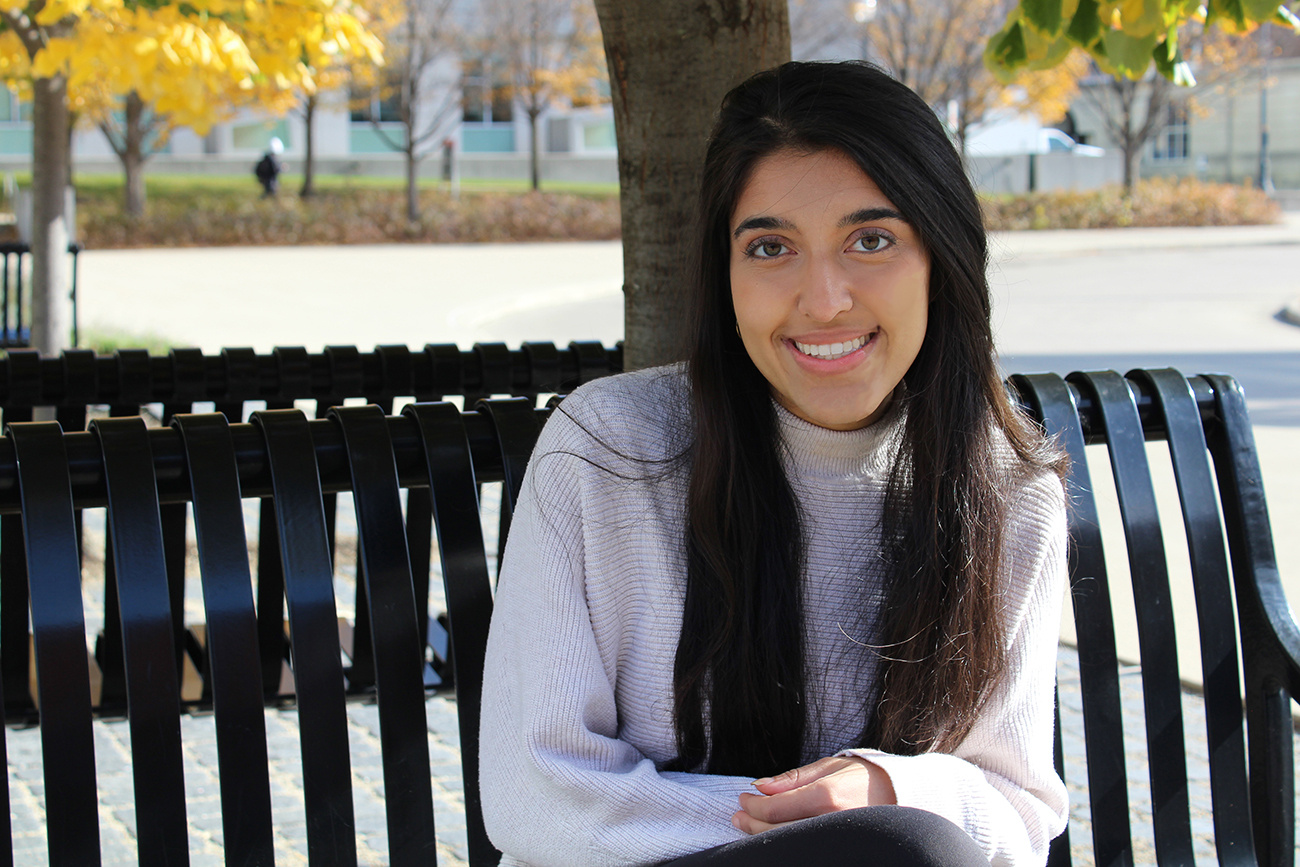Public Health Buckeyes: Mahrukh Naqvi
BSPH student cultivates passion for community health

Mahrukh Naqvi is a fourth-year student specializing in environmental public health with a minor in neuroscience. After graduating in May, Naqvi plans to pursue a dual MD/MPH with the long-term goal of improving health for individuals and communities.
Can you give us some background about you?
 I was born in Pakistan but have spent most of my life in Dublin, Ohio. I like to bake, read and take workout classes. I have a three-year-old chunky orange cat named Beans, whom I love dearly.
I was born in Pakistan but have spent most of my life in Dublin, Ohio. I like to bake, read and take workout classes. I have a three-year-old chunky orange cat named Beans, whom I love dearly.
Why did you decide to study public health?
When I was searching for an undergraduate program, I wanted to be in a major that provided a comprehensive understanding of community health with experiences applicable to my future career goals to work in medicine and public health.
Are you involved in any academic, professional or student activities?
I’m currently co-president of ENCompass, a student organization dedicated to bridging the gap between medical and social care within the Columbus community. By connecting clients with free resources in central Ohio, we aim to mitigate various social determinants of health. In collaboration with local nonprofits, our volunteers connect clients to available resources, addressing issues ranging from food insecurity to homelessness to basic health. ENCompass focuses on both short-term and long-term concerns for our clients with the goal of improving overall community health.
As ENCompass co-president, I’ve been able to work on incredible projects, like teaming up with Moms2B to create care packages for new mothers during the pandemic and the Hilltop mapping project, which connects Hilltop residents to community services.
I’m also involved in a research group focused on COVID-19 impacts among vulnerable populations, the Public Health Student Leadership Council, Delta Omega Kappa, Health Science Scholars and CHAARG. I also work as a tutor!
What have you taken away from these experiences?
These experiences have shaped my future — I can’t imagine these past four years without them. I’ve been able to learn so much about public health from supportive mentors and advisors. I’m excited to implement the ideas I’ve learned throughout these experiences in my future endeavors.
What advice would you give incoming students?
Nearly all the opportunities I’ve had throughout my undergraduate career have come from applying for opportunities I didn’t feel ready for at the time. Apply for positions you feel unqualified for, ask questions you are nervous to ask and reach out to individuals who are involved in positions you’re interested in. The worst thing anyone can say is no! Ohio State offers myriad opportunities and services, and actively attending opportunities can help you take advantage of all this school has to offer. I also wish that you appreciate each day you have here. Now in my last year, I find myself savoring so many small moments, and I hope you find time to pause each day for yourself!
What do you hope for the future of public health?
To have significant, sustainable impacts in the community, we must listen to the voices in the community, empower individuals and invest in the population. Current health inequities are manifestations of historical injustices, and for any improvements to occur, this reality must be widely recognized, and efforts must be made to heal those communities. I hope the importance of public health is recognized, and future public health efforts lead with the intention to listen and heal. Health efforts are most effective when they are personalized to specific communities, and when community members are leaders in implementing these efforts. We can start to heal communities by working with the goal to empower community members to take the lead and by fiscally investing in community resources and development.
About The Ohio State University College of Public Health
The Ohio State University College of Public Health is a leader in educating students, creating new knowledge through research, and improving the livelihoods and well-being of people in Ohio and beyond. The College's divisions include biostatistics, environmental health sciences, epidemiology, health behavior and health promotion, and health services management and policy. It is ranked 22nd among all colleges and programs of public health in the nation, and first in Ohio, by U.S. News and World Report. Its specialty programs are also considered among the best in the country. The MHA program is ranked 5th and the health policy and management specialty is ranked 21st.